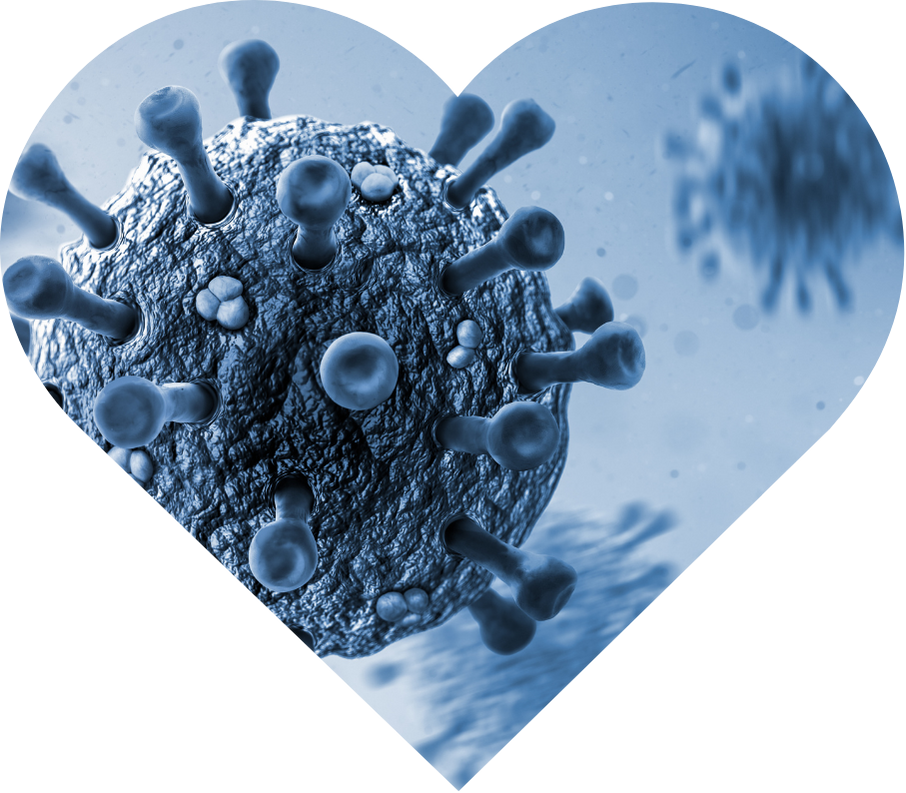As Hildegard of Bingen wrote her "Physica" in the 12th century, she described the powers of medicinal plants with a precision that still astonishes centuries later. Women like her shaped European herbalism – practical, observant, and effective. Today, modern research confirms much of this: certain herbs can strengthen immune resilience – that is, the ability of our immune system to respond flexibly and robustly to stressors. For high performers, this is more than folklore: it is a pragmatic strategy for energy, health, and longevity.
Immune resilience means that the immune system quickly responds to threats, then finds balance again while protecting tissues. A centered immune status heavily depends on oxidative stress and inflammation regulation. Oxidative stress occurs when free radicals dominate; antioxidants buffer this. Herbs provide bioactive molecules such as Ginsenosidessaponin compounds from ginseng, Alkamidesfat-soluble compounds from echinacea that influence immune cells, Chicoric Acidantioxidant phenolic acid from echinacea, as well as polyphenols from elderberries. These substances modulate signaling pathways like NF-κBtranscription factor that regulates inflammatory programs and activate defense lines from innate immunity (e.g., NK cells) to adaptive immunity (T and B cells). The goal is not “more immune activity” at any cost, but the right response at the right time.
Echinacea can activate immune cells like macrophages and NK cells and enhance phagocytosis; preclinical data show improved cytokine responses and increased immunoglobulins – a pattern that indicates finely tuned immune modulation [1] [2] [3]. Ginger provides an antioxidant shield with gingerols and shogaols and dampens pro-inflammatory signaling pathways, reducing cellular stress and stabilizing immunological performance during demanding phases [4]. Ginseng acts as an adaptogen: studies report normalized cytokine profiles, strengthened T cell balance, and an increase in NK/NKT cells after stress – a profile that supports both defense and regeneration [5] [6]. Finally, elderberries show in a meta-analysis a significant reduction of upper respiratory symptoms in colds/influenza – valuable during times of high stress when absences are costly [7].
An animal model under exhaustive stress demonstrates how ginseng extract corrects immunological imbalances after intense exertion: cytokines shift away from pro-inflammatory patterns, the CD4+/CD8+ index normalizes, and the activity of regulatory T cells increases; simultaneously, energy pathways stabilize through leptin/ghrelin – a relevant result for athletes and high performers, as recovery and immune control converge [5]. Additionally, a comprehensive review describes that Panax ginseng with ginsenoside-rich water or ethanol extracts exhibits antioxidant, immune-stimulating, and anti-inflammatory effects, including inhibition of NF-κB and enhancement of central immune cell function; the authors also refer to a favorable safety profile in preclinical and clinical contexts [6]. For echinacea, preclinical studies provide consistent signals: extracts with defined chicoric acid and alkamides increase phagocytosis, enhance TNF-α/IL-6/IL-1β in a controlled manner, and activate NK cells; in stress models through forced movement, B cell proliferation, leukocyte counts, and immunoglobulins increase – a pattern that explains the “boost” of innate immunity during stress phases [1] [3]. Finally, a meta-analysis on elderberries shows that supplements significantly reduce symptom burden in viral infections of the upper respiratory tract – clinically relevant for seasonal peaks when training, travel, and work accumulate [7].
- Use echinacea wisely: 2–4 week cycles during high-stress or cold phases. Prefer standardized extracts (e.g., with defined chicoric acid/alkamides). Guidance: 300–600 mg extract/day, divided. Goal: activation of macrophages/NK cells and support for adaptive responses [1] [2] [3].
- Incorporate ginger daily: 2–3 g fresh ginger as tea (pour hot water, steep for 8–10 minutes) or 500–1000 mg standardized extract/day during intense training or travel phases. Benefits: antioxidant protection via Nrf2 and inflammatory modulation for clearer recovery [4].
- Use ginseng as an adaptogen: 200–400 mg Panax ginseng extract/day (standardized to ginsenosides), for 6–8 weeks, then 2 weeks off. Ideal in the morning for cognitive alertness and stress buffering; during intensive training blocks, immune balance can benefit [5] [6].
- Utilize elderberries seasonally: During cold season, take 10–15 ml of standardized elderberry syrup 2–3 times daily at the first scratch in the throat or after exposing travels. Goal: shorter and milder duration of symptoms [7].
- Quality & timing: Rely on tested products with clear active ingredient information; begin 1–2 weeks before expected stress peaks (competitions, deadlines, long-haul flights) to proactively increase immune resilience.
- Check interactions: Consult a physician if you have autoimmune diseases, are pregnant, taking anticoagulants, or planning surgery. Herbs are effective – and should be treated like potent tools.
Immune resilience can be trained – and medicinal herbs are precise tools for this. Start today: incorporate ginger into your daily routine, use echinacea and elderberries for the season, and take ginseng as a smart regimen during stress phases. Set a date in your calendar and build your personal immune protocol for the next eight weeks.
This health article was created with AI support and is intended to help people access current scientific health knowledge. It contributes to the democratization of science – however, it does not replace professional medical advice and may present individual details in a simplified or slightly inaccurate manner due to AI-generated content. HEARTPORT and its affiliates assume no liability for the accuracy, completeness, or applicability of the information provided.













